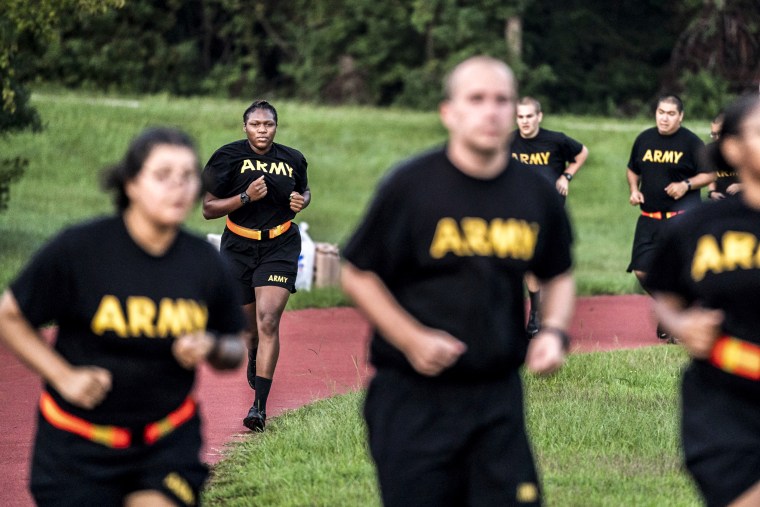Right-wing politicians and advocates have complained recently that the military’s embrace of “woke” policies are to blame for its falling recruitment rates. But new survey data indicates that young people are rarely deterred by the military’s policies on inclusiveness — and in fact are significantly more likely to be discouraged from enlisting due to concern about discrimination within the military.
The Associated Press obtained data from a survey of thousands of 16- to 28-year-olds that was commissioned by the Army and carried out by a private research contractor. According to the AP, “On average, only 5% of the respondents in the surveys listed ‘wokeness’ as an issue, compared with 13% who say they believe that women and minorities will face discrimination and not get the same opportunities.”
More than double the proportion of people who are fazed by wokeness seem to think the Army isn’t woke enough.
It’s a bit strange to try to gauge wariness about “wokeness” through a poll, since it has become such a politically charged term. Advocates and users of the term in left-of-center political circles have considered it shorthand for attentiveness to social injustice tied to identity. But the right has now turned it into a pejorative to mock efforts at inclusivity and perceived political correctness. Nonetheless, the survey suggests that the military’s implementation of policies tied to inclusiveness in recent years — such as gender integration of combat units, a greater emphasis on diversity and equity in leadership positions, allowing trans people to serve in the military, and arguably vaccine mandates (which were dropped after the survey took place) — are not a serious obstacle for new recruits. Meanwhile, more than double the proportion of people who are fazed by wokeness seem to think the Army isn’t woke enough — that it’s an unwelcoming institution for people from marginalized backgrounds.
But by far the biggest deterrents to joining the Army are tied to perennial reasons that people may be reluctant to join the armed forces. According to the survey, they are, in order: fear of death; worries about post-traumatic stress disorder; and leaving friends and family. Outside of those top three reasons, the biggest concern is “putting my life on hold.”
The survey indicates that right-wing hysteria about a woke military probably isn’t resonating with or salient in the minds of young people who could potentially enlist. Shockingly, their concern about whether they would die while serving seems to be a bigger deal than whether trans people have equal rights in the military. (This survey was focused on the Army, but all branches of the U.S. military are facing recruitment problems.)
Now, there’s still a question as to why military recruitment has dipped since the 2010s. Some analysts believe that it might partially be attributable to the tight labor market — with lots of jobs available and wages improving, the military may have become a less attractive choice. There’s also the possibility that a decline in in-person outreach and recruitment during the peak of the pandemic has dampened the pool of recruits. Additionally, the Army has reported that there’s been a downturn in recruitment rates because of a significant drop in test scores and health issues and an uptick in prior drug use among applicants.
More broadly speaking, there could be some deeper ideological undercurrents tied to changing perceptions of war at play. The War on Terror has ebbed, reducing the pool of volunteers for the military who might’ve been motivated by a desire to protect and serve a country under threat from international terrorist networks. And to the extent that memories of that era exist, many of them are negative: the wars in Iraq and Afghanistan were both catastrophic failures, and many of the veterans who survived have had their lives ruined by injuries and PTSD. Without the motivating force of an existential threat and with declining trust in institutions, it’s not surprising that Gen Z might not rushing to enlist.
But whatever the reasons, the military’s modest attempts to make the institution look more like the country it’s meant to serve are not the key issue here. Attempts to argue that it is are more often about political point-scoring than they are a serious reflection on how perception of the military in our society may be changing.

